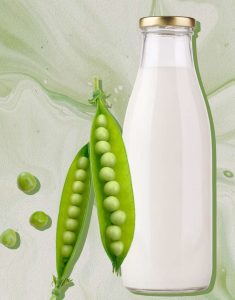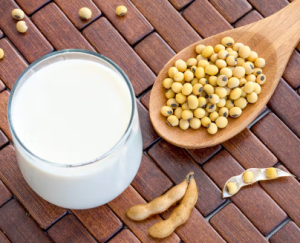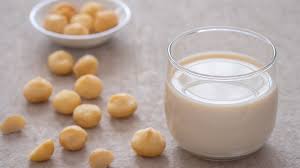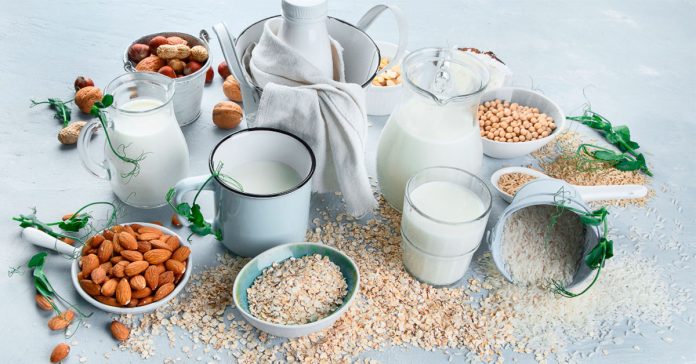Plant-based milks have emerged as the new kid in the dietary scene, being touted as a non-dairy alternative to cow’s milk. Plant-based milks are often referred to as dairy alternatives.

Dietitians swear that plant milk can be a safe and healthy choice from childhood to adulthood. What is more, whether it is soy milk, or almond, cashew, rice, coconut, oat, or even pea milk, there is no shortage of choice.
Nutrient-rich
Nutrition specialist, Amy Shapiro, says milks derived from plants are packed with fiber, which is a carbohydrate that helps your body digest food, supports healthy blood sugar regulation, increases satiety, and more.
“Dietary fiber content can contribute to improved digestive health and support the growth of beneficial gut bacteria,” Shapiro adds.
Online platform Dietitians Australia, supports Shapiro’s position, noting that plant milks are often fortified with key nutrients such as calcium, iodine, vitamin B12 and vitamin D to support health.
The experts also note that plant-based milks offer a delicious solution, “being completely free of lactose” – the sugar found in dairy that some people have trouble digesting.
Why people are opting for plant milk
According to nutritionists, many people choose plant milk for ethical reasons. “One concern is the treatment of livestock in the dairy milk production process.
“There is a movement of consumers who resent animal products – such as milk – because they are not necessarily associated with good animal welfare,” says Johannes le Coutre, Professor of Chemical Engineering at the University of New South Wales, Sydney, Australia.
Plus, plant milks are lower in fat and calories and people on diet may find it more useful than the regular cow’s milk.
Indeed, according to the American Society of Nutrition, most milk alternatives are a healthier choice when it comes to fat and calories. “Compared to one cup of whole-fat cow’s milk, most plant-based milks have 37% to 75% less fat,” ASN says.
What type of milk is healthiest?
According to food experts, low-fat, skim or 1% cow’s milk are healthier options when compared to 2% or whole milk. They contain less fat.

However, they say, if you can’t have cow’s milk, then soy milk and rice milk are often the healthiest milk for gut health — especially for people with celiac disease, an autoimmune disease that can cause inflammation, says a clinical dietitian.
They note that, among the plant options, soy milk comes closest to the nutritional profile of cow’s and goat’s milks; adding that many plant-based milks are lower in saturated fat and calories than cow’s milk.
Disadvantages
Plant milks are not without their downsides, though. Nutritionists say that despite their overall advantages, plant-based milk alternatives are not a perfect food: “Most contain fewer micronutrients compared to dairy products, including low to no magnesium, zinc, selenium or phosphorus,” Shapiro warns.
Indeed, according to food researchers, organic plant-based milks have the poorest nutrition. They warn that being organic might make plant-based milks seem a better option, as they have less additives, warning that, that is the problem itself.
“As plant-based milks contain no natural calcium, B2 or B12, they must be added for the product to be a good option for health,” the specialists say.
“Other ingredients commonly added to plant milks during manufacturing include guar gum, xanthan gum, or sunflower lecithin for texture and mouthfeel, select micronutrients (such as calcium, B vitamins, and vitamin D), salt, and natural or artificial ingredients — such as flavours characteristic of the featured plant — for aroma, colour, and taste,” experts at the American Society of Nutrition say.
Who should drink plant-based milk?
Nutritionists say non-dairy milk replacements are perfect for vegetarians and vegans, and that the environmental impact of non-dairy beverages is much smaller than that of cow’s milk production.
Talking about environmental impact, many people are switching to plant-based milk because consumers want to live a more sustainable lifestyle and reduce their carbon footprint. And, according to the United Nations Food and Agriculture Organization, livestock produces 14.5 percent of all global greenhouse emissions.
Is plant milk good for you?
Nutritionists say that, unlike dairy, most plant milks contain healthy, monounsaturated fat, like that found in olive oil, with the exception of coconut milk, which contains saturated fat.
Some varieties of plant milks also provide heart-healthy omega 3 and other fatty acids, as well as fiber, which is not found in dairy.
“Almond, cashew, and macadamia nut milks, for example, are higher in heart-healthy unsaturated fats, as are soy, hemp, and flax milks,” they say; adding, “Soy milk provides the same high amount of protein found in cow’s milk.”
What plant milk is best for kidneys?
For patients with chronic kidney disease, nephrologists say coconut milk compares favorably with dairy milk based on the lowest sodium, potassium, and oxalate levels.

Macadamia milk is another option for patients who are restricting potassium and oxalate, but has a higher sodium content than coconut milk, experts at the National Center for Biotechnology Information say.
Can babies have plant-based milk?
Paediatricians say giving babies plant milks is a no-no because most plant-based milk doesn’t deliver enough of the key nutrition, like vitamin D and calcium, that growing children need in this vital developmental stage.
How the plant-based milks compare in terms of nutrients
Soy milk
- Pros: High in protein and vitamin A
- Cons: Not a significant source of calcium
Almond milk (unsweetened and calcium fortified)
- Pros: Low in calories, high in calcium
- Cons: Not a significant source of protein
Rice and oat milk
- Pros: Low in fat and calories
- Cons: Low in protein and nutrients
Coconut milk
- Pros: High in phosphorus and potassium
- Cons: Not a significant source of calcium or protein, high in fat
Other nut milk
Cashew, walnut, hazelnut and macadamia milk are less common nut and plant-based milk alternatives.
Typically nut milks are high in fat and calories, but they’re also high in essential nutrients, like iron and vitamins E and D (if they’ve been fortified).


